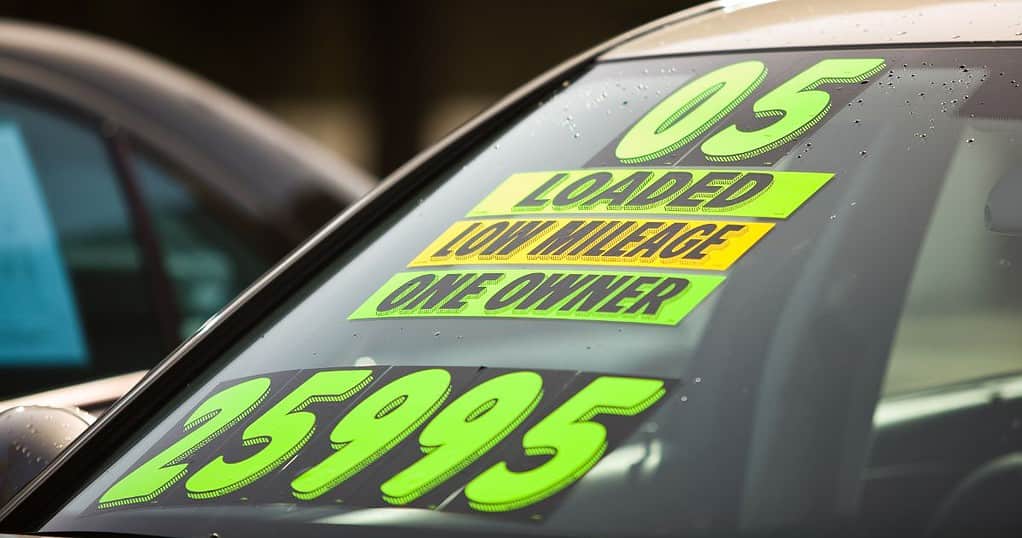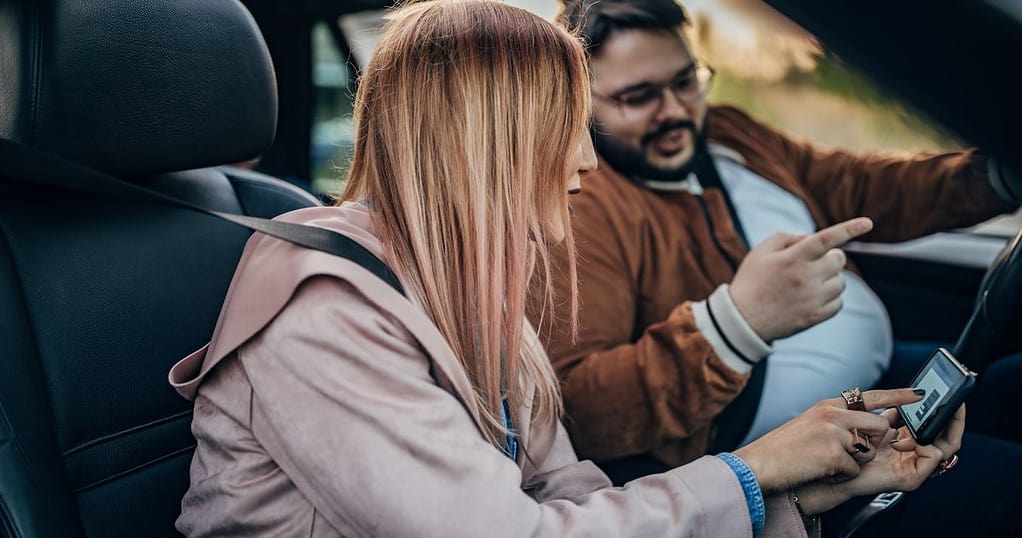Buying a Used Car from a Dealership: Tips and Considerations
Buying a used car can be a great way to save money, but it can also be a daunting process. With so many options available, it can be difficult to know where to start. One option is to buy a used car from a dealership. While this may not be the cheapest option, it can offer some advantages over buying from a private seller.

One of the main advantages of buying a used car from a dealership is that you can have more peace of mind about the condition of the vehicle. Dealerships typically have a process for inspecting and repairing used cars before putting them up for sale. Generally, this means that you can be reasonably sure that the car you’re buying is in good condition and won’t require any major repairs in the near future.
Another advantage of buying from a dealership is that you may have more options when it comes to financing. Dealerships often have relationships with multiple lenders, which means they can offer a variety of financing options to suit your needs. Additionally, dealerships may be able to offer warranties or other protections that can give you added peace of mind.
Pros of Buying a Used Car from a Dealership
Buying a used car from a dealership can have many advantages over buying from a private seller. Here are some of the pros of buying a used car from a dealership:
- Reliability: Dealerships often have a reputation to uphold and will usually only sell cars that have been thoroughly inspected and meet certain standards. This can give you peace of mind that the car you are buying is reliable and in good condition.
- Warranty: Many dealerships offer warranties on their used cars, which can cover repairs and maintenance for a certain period of time after purchase. This can save you money on unexpected repairs and give you added protection.
- Financing: Dealerships often have financing options available, which can make it easier to purchase a car if you don’t have the full amount upfront. They may also have relationships with lenders that can offer competitive interest rates.
- Trade-ins: If you have a car to trade in, dealerships can often offer you a fair price for it and apply it towards the purchase of your new car. This can save you time and hassle trying to sell your old car on your own.
- Selection: Dealerships often have a wide selection of used cars to choose from, which can make it easier to find the exact make and model you are looking for. They may also have newer models with more advanced features than you would find from a private seller.
Overall, buying a used car from a dealership can be a smart choice for many reasons. Just be sure to do your research and shop around to find the best deal and the most reputable dealership in your area.
Cons of Buying a Used Car from a Dealership
While buying a used car from a dealership can be a convenient option for many, there are also some downsides to consider. In this section, we will discuss some of the cons of buying a used car from a dealership.
Higher Prices: One of the biggest drawbacks of buying a used car from a dealership is the higher prices. Dealerships have overhead costs that they need to cover, such as rent, salaries, and advertising. These costs are passed on to the buyer, which means that the prices of used cars at dealerships are often higher than those sold by private sellers.
Less Room for Negotiation: Another disadvantage of buying a used car from a dealership is that there is less room for negotiation. Dealerships often have set prices for their used cars, and they may not be willing to budge on the price. This can make it difficult to get a good deal on a used car.
Less Personalized Service: When you buy a used car from a dealership, you are dealing with a business, not an individual. This means that the service you receive may be less personalized. You may not have the same level of interaction with the seller as you would if you were buying from a private seller. This can make it more difficult to get information about the car and to negotiate a deal.
Possible Hidden Fees: Finally, when buying a used car from a dealership, it is important to be aware of possible hidden fees. Dealerships may add on fees for things like documentation, preparation, or advertising. These fees can add up quickly and significantly increase the price of the car.
Overall, while buying a used car from a dealership can be a convenient option, it is important to be aware of the potential downsides. By understanding the cons of buying a used car from a dealership, you can make an informed decision about whether this is the right choice for you.

How to Choose the Right Dealership
Choosing the right dealership is crucial when buying a used car. Here are some tips to help you make an informed decision:
- Do your research: Before you visit any dealership, do some research online. Check the dealership’s website, read reviews on third-party websites, and ask for recommendations from friends and family.
- Check the dealership’s reputation: Look for dealerships that have a good reputation in the community. You can check with the Better Business Bureau to see if there are any complaints against the dealership.
- Inspect the dealership’s inventory: Take a look at the dealership’s inventory to see if they have the type of car you’re looking for. Check the condition of the cars and make sure they have been well-maintained.
- Ask about warranties: Find out if the dealership offers any warranties or guarantees on their used cars. This can give you peace of mind knowing that you’re covered if something goes wrong with the car.
- Check financing options: If you need financing, find out if the dealership offers financing options. Compare their rates and terms with other lenders to make sure you’re getting a good deal.
By following these tips, you can find a reputable dealership that will provide you with a quality used car at a fair price.
Questions to Ask Before Buying a Used Car
Buying a used car can be a great way to save money, but it’s important to do your due diligence before making a purchase. Here are some questions to ask before buying a used car from a dealership:
1. What is the car’s history?
Ask the dealership for a vehicle history report, which will give you information about the car’s previous owners, accidents, and repairs. You should also ask if the car has ever been in a flood or other natural disaster, as this can cause long-term damage that may not be immediately apparent.
2. What is the car’s mileage?
Be sure to ask about the car’s mileage and how it was driven. A car with low mileage may seem like a good deal, but if it was driven primarily in stop-and-go traffic, it may have more wear and tear than a car with higher mileage that was driven mostly on the highway.
3. What is the car’s condition?
Inspect the car thoroughly, both inside and out, before making a purchase. Look for any signs of damage or wear and tear, and ask the dealership if any repairs are needed. You should also take the car for a test drive to make sure it handles well and doesn’t have any mechanical issues.
4. What is the warranty?
Ask the dealership about the warranty that comes with the car. Some used cars may still be covered by the manufacturer’s warranty, while others may come with a dealership warranty. Be sure to read the warranty carefully and ask any questions you may have before making a purchase.
5. What is the price?
Finally, ask the dealership about the price of the car. Be sure to negotiate and try to get the best deal possible, but also be realistic about the car’s value and condition. Don’t be afraid to walk away if you feel like the dealership is asking too much.
By asking these questions before buying a used car from a dealership, you can ensure that you’re making a smart and informed purchase.
Inspecting the Car
Before making a purchase, it is important to thoroughly inspect the used car to ensure that it is in good condition. Here are some key things to look for:
- Exterior: Check for any signs of damage, such as dents or scratches. Look closely at the paint job to see if there are any inconsistencies or signs of repainting. Check the tires for wear and tear, and make sure that they are all the same brand and size.
- Interior: Check the seats, carpets, and headliner for any signs of damage or stains. Test all of the buttons and switches to make sure that they are functioning properly. Check the air conditioning and heating to make sure that they are working well.
- Under the hood: Check the oil level and look for any signs of leaks. Check the transmission fluid and brake fluid levels as well. Look for any signs of rust or corrosion, and check the belts and hoses for wear and tear.
- Test drive: Take the car for a test drive to get a feel for how it handles. Test the brakes, acceleration, and steering. Listen for any unusual noises, such as rattling or squeaking.
Inspecting a used car can be a time-consuming process, but it is well worth it to ensure that you are making a good investment. If you are unsure about anything, don’t hesitate to ask the dealership for more information or to bring in a mechanic for a professional inspection.
Test Driving the Car
Once you have found a used car that you are interested in, it is important to take it for a test drive before making a purchase. This will give you a chance to get a feel for the car and see if it is a good fit for you.

Here are some things to keep in mind when test driving a used car:
- Check the car’s overall condition, paying attention to any dents, scratches, or other damage.
- Make sure all of the car’s features are working properly, including the air conditioning, radio, and power windows.
- Take the car on a variety of roads, including highways and side streets, to get a sense of how it handles in different conditions.
- Try out the brakes, acceleration, and steering to make sure they are all in good working order.
- Listen for any unusual noises or vibrations while driving.
During the test drive, it is important to pay attention to how the car feels and handles. If you notice anything that seems off, be sure to bring it up with the salesperson. They may be able to explain the issue or offer to have it looked at by a mechanic.
Keep in mind that a test drive is just one part of the car-buying process. Be sure to do your research on the make and model of the car, as well as the dealership you are buying from, before making a final decision.
Negotiating the Price
When buying a used car from a dealership, negotiating the price is an essential step in the process. Here are some tips that can help you get the best deal possible:
- Do your research: Before you start negotiating, make sure you know the market value of the car you want to buy. This will give you an idea of what a fair price is and help you avoid paying too much.
- Be prepared to walk away: If the dealer is not willing to negotiate, be prepared to walk away. There are plenty of other dealerships and cars out there, and you don’t want to end up overpaying for a car.
- Start low: When making an offer, start with a low but reasonable price. This will give you room to negotiate and hopefully get the price down even further.
- Focus on the total cost: Don’t just focus on the monthly payments or the price of the car. Make sure you know the total cost, including taxes, fees, and any extras that the dealer may try to add on.
- Be willing to compromise: Negotiating is all about finding a compromise that works for both parties. Be willing to compromise on things like the price, the extras, or the financing terms in order to reach a deal.
Remember, negotiating the price of a used car can be a stressful process, but it’s important to stay calm and focused. By doing your research, being prepared to walk away, starting low, focusing on the total cost, and being willing to compromise, you can increase your chances of getting a great deal on a used car from a dealership.
Closing the Deal
Once you have found the right used car and negotiated a price with the dealership, it’s time to close the deal. Here are a few things to keep in mind:
- Read the contract carefully before signing anything. Make sure you understand all the terms and conditions, including any warranties or guarantees.
- Ask about the dealership’s return policy. Some dealerships may offer a limited window of time during which you can return the car if you are not satisfied.
- Make sure you have all the necessary paperwork, including the title, registration, and any other relevant documents. Double-check that all the information is correct.
- If you are financing the car, review the loan agreement and make sure you understand the interest rate, monthly payments, and any fees or penalties.
Before you drive off the lot, take the car for a test drive to ensure that everything is in working order. Check the brakes, steering, and other systems to make sure there are no issues.
Finally, don’t forget to ask about any additional services or perks that the dealership may offer, such as free oil changes or tire rotations. These can help you save money in the long run and keep your car running smoothly.
Conclusion
Buying a used car from a dealership can be a great way to get a reliable vehicle at a fair price. However, it’s important to do your research and take the necessary precautions to ensure you’re getting a good deal.
Before visiting a dealership, make sure you know what type of car you’re looking for and what your budget is. Research the make and model of the car to get an idea of its reliability, common problems, and average price range. This will help you negotiate a fair price with the dealership.
When you visit the dealership, take the car for a test drive and inspect it thoroughly for any signs of damage or wear and tear. Ask for a vehicle history report and check for any accidents or major repairs. Don’t be afraid to negotiate the price or walk away if you’re not satisfied with the deal.
Overall, buying a used car from a dealership can be a positive experience if you take the time to do your research and make informed decisions. By following these tips, you can find a reliable car that fits your budget and meets your needs.
